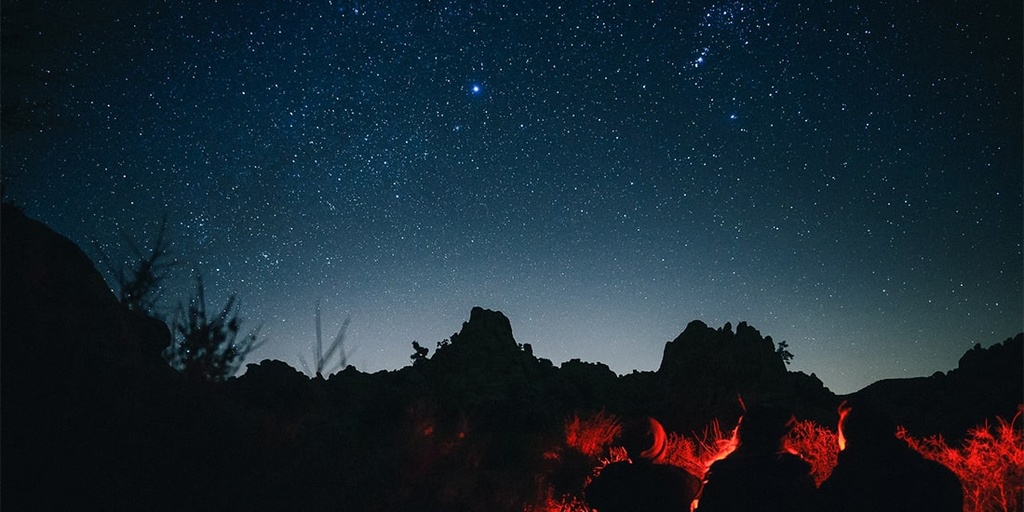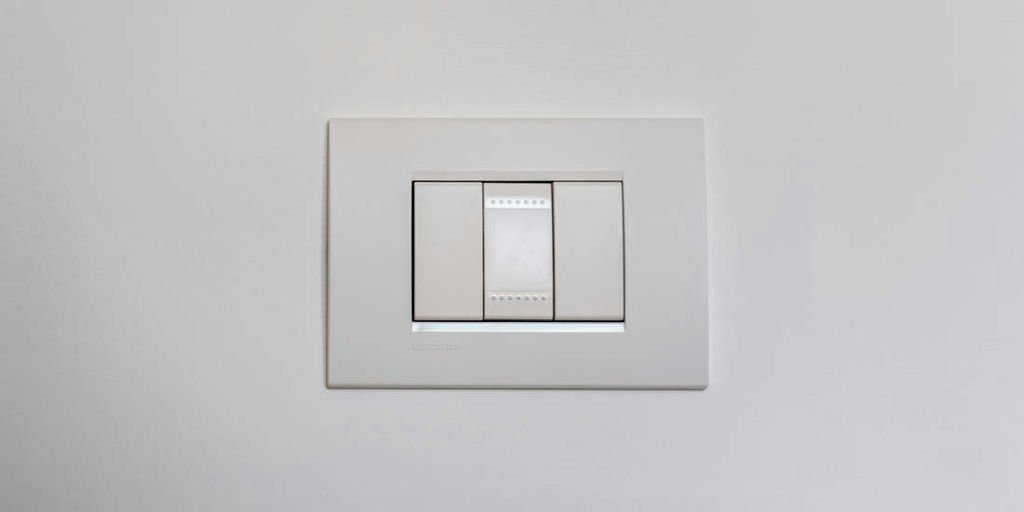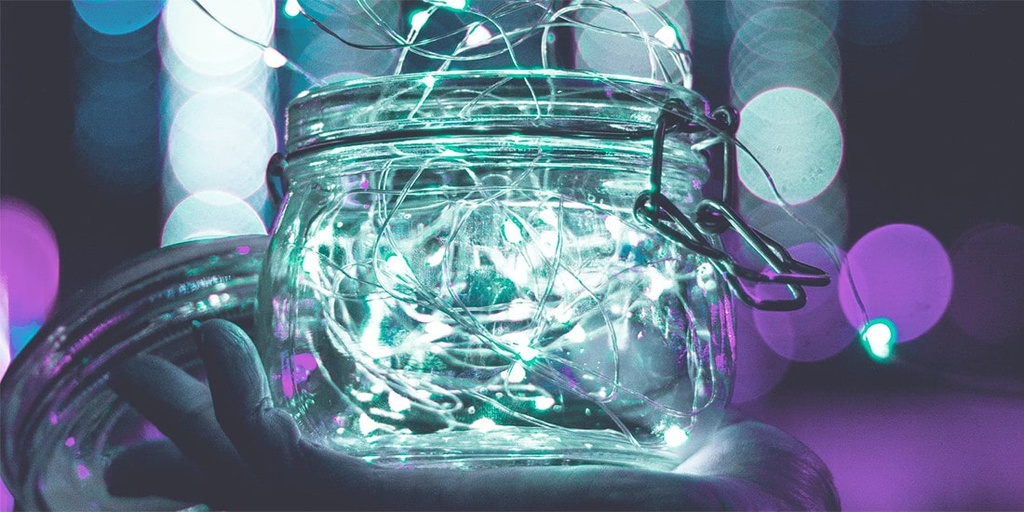Protect the night

Earth Points45 




EaseMedium
Summary
Excessive lighting at night not only wastes energy but also disrupts countless species that rely on darkness. You can help by turning off unnecessary lights at night and encouraging others to do the same.
Description
People light up the night almost without thinking, as we have for millennia. At the minimal level, we do this instinctively for our survival and protection. But the practice has grown to destructive extremes in modern societies. With a lack of understanding and appreciation for the night sky, most have failed to consider the costs and consequences of turning darkness into light. Instead, particularly in urban areas, we have come to expect and admire bright lights at night. What goes unseen is the extent to which nighttime lighting wastes vast amounts of money and energy (typically in the form of electricity generated from burning fossil fuels), damages ecosystems, and detrimentally affects our health (1)(5)(6)(7).
There are estimates that lighting accounts for 15 percent of global electricity consumption and 5 percent of greenhouse gas emissions. It is a colossal waste that comes with significant pollution and economic costs (2)(3)(4)(5).
The good news is that there are many ways we can act to reverse this trend at multiple levels (e.g., individual, residential, business, industrial, governmental). Awareness about light pollution and effective solutions and success stories are growing. Consider the following actions to do your part.
Save energy and money:
• First, consider and analyze your nighttime energy use, especially in outdoor lighting.
• Turn off lights when not in use or use automatic sensors.
• Use efficient LED bulbs and lighting fixtures with shields that only brighten areas where needed.
Contribute your time to building awareness and community support:
• A great place to get started is to join up with Globe at Night. You can help measure night-sky brightness and contribute your data to build knowledge and inform action.
• Contribute to an existing event or coordinate a new stargazing, lights-out, or similar activity to inform and engage.
• If you are an educator, incorporate light pollution into your programming or curriculum(s).
Advocate for broader change in your community and beyond:
• Research and then urge your community to adopt or improve a lighting ordinance, especially for street lighting.
• Reach out to local elected official(s) or building manager(s) to build awareness and stimulate change. Audubon's Lights Out program provides sample letters and other resources:
• Urge your employer or school to take a Lights Out Pledge or otherwise commit to evaluating and improving outdoor lighting.
Enjoy the darkness of the night. While humans cannot see well in the dark, many creatures depend on it. If you can escape to a quiet, natural area after dark, consider yourself lucky and take advantage of it! Soak in the sounds and sky and observe the nightlife.
References:
(1) Chepesiuk R. (2009). Missing the dark: health effects of light pollution. Environmental health perspectives, 117(1), A20–A27.
(2) Glare-Raising: How Much Energy Does Excessive Nighttime Lighting Waste? Scientific American
(3) Light Pollution: The Overlooked Issue Destroying Planet Earth
(4) Rise and Shine: Lighting the World with 10 Billion LED Bulbs.Department of Energy.
(5) Light Pollution Hurts Our Economy and Our Resources
(6) Bright City Lights Affect Air Pollution — CIRES
(7) Street lighting affects insect biodiversityPeople light up the night almost without thinking, as we have for millennia. At the minimal level, we do this instinctively for our survival and protection. But the practice has grown to destructive extremes in modern societies. With a lack of understanding and appreciation for the night sky, most have failed to consider the costs and consequences of turning darkness into light. Instead, particularly in urban areas, we have come to expect and admire bright lights at night. What goes unseen is the extent to which nighttime lighting wastes vast amounts of money and energy (typically in the form of electricity generated from burning fossil fuels), damages ecosystems, and detrimentally affects our health (1)(5)(6)(7).
There are estimates that lighting accounts for 15 percent of global electricity consumption and 5 percent of greenhouse gas emissions. It is a colossal waste that comes with significant pollution and economic costs (2)(3)(4)(5).
The good news is that there are many ways we can act to reverse this trend at multiple levels (e.g., individual, residential, business, industrial, governmental). Awareness about light pollution and effective solutions and success stories are growing. Consider the following actions to do your part.
Save energy and money:
• First, consider and analyze your nighttime energy use, especially in outdoor lighting.
• Turn off lights when not in use or use automatic sensors.
• Use efficient LED bulbs and lighting fixtures with shields that only brighten areas where needed.
Contribute your time to building awareness and community support:
• A great place to get started is to join up with Globe at Night. You can help measure night-sky brightness and contribute your data to build knowledge and inform action.
• Contribute to an existing event or coordinate a new stargazing, lights-out, or similar activity to inform and engage.
• If you are an educator, incorporate light pollution into your programming or curriculum(s).
Advocate for broader change in your community and beyond:
• Research and then urge your community to adopt or improve a lighting ordinance, especially for street lighting.
• Reach out to local elected official(s) or building manager(s) to build awareness and stimulate change. Audubon's Lights Out program provides sample letters and other resources:
• Urge your employer or school to take a Lights Out Pledge or otherwise commit to evaluating and improving outdoor lighting.
Enjoy the darkness of the night. While humans cannot see well in the dark, many creatures depend on it. If you can escape to a quiet, natural area after dark, consider yourself lucky and take advantage of it! Soak in the sounds and sky and observe the nightlife.
References:
(1) Chepesiuk R. (2009). Missing the dark: health effects of light pollution. Environmental health perspectives, 117(1), A20–A27.
(2) Glare-Raising: How Much Energy Does Excessive Nighttime Lighting Waste? Scientific American
(3) Light Pollution: The Overlooked Issue Destroying Planet Earth
(4) Rise and Shine: Lighting the World with 10 Billion LED Bulbs.Department of Energy.
(5) Light Pollution Hurts Our Economy and Our Resources
(6) Bright City Lights Affect Air Pollution — CIRES
(7) Street lighting affects insect biodiversity
There are estimates that lighting accounts for 15 percent of global electricity consumption and 5 percent of greenhouse gas emissions. It is a colossal waste that comes with significant pollution and economic costs (2)(3)(4)(5).
The good news is that there are many ways we can act to reverse this trend at multiple levels (e.g., individual, residential, business, industrial, governmental). Awareness about light pollution and effective solutions and success stories are growing. Consider the following actions to do your part.
Save energy and money:
• First, consider and analyze your nighttime energy use, especially in outdoor lighting.
• Turn off lights when not in use or use automatic sensors.
• Use efficient LED bulbs and lighting fixtures with shields that only brighten areas where needed.
Contribute your time to building awareness and community support:
• A great place to get started is to join up with Globe at Night. You can help measure night-sky brightness and contribute your data to build knowledge and inform action.
• Contribute to an existing event or coordinate a new stargazing, lights-out, or similar activity to inform and engage.
• If you are an educator, incorporate light pollution into your programming or curriculum(s).
Advocate for broader change in your community and beyond:
• Research and then urge your community to adopt or improve a lighting ordinance, especially for street lighting.
• Reach out to local elected official(s) or building manager(s) to build awareness and stimulate change. Audubon's Lights Out program provides sample letters and other resources:
• Urge your employer or school to take a Lights Out Pledge or otherwise commit to evaluating and improving outdoor lighting.
Enjoy the darkness of the night. While humans cannot see well in the dark, many creatures depend on it. If you can escape to a quiet, natural area after dark, consider yourself lucky and take advantage of it! Soak in the sounds and sky and observe the nightlife.
References:
(1) Chepesiuk R. (2009). Missing the dark: health effects of light pollution. Environmental health perspectives, 117(1), A20–A27.
(2) Glare-Raising: How Much Energy Does Excessive Nighttime Lighting Waste? Scientific American
(3) Light Pollution: The Overlooked Issue Destroying Planet Earth
(4) Rise and Shine: Lighting the World with 10 Billion LED Bulbs.Department of Energy.
(5) Light Pollution Hurts Our Economy and Our Resources
(6) Bright City Lights Affect Air Pollution — CIRES
(7) Street lighting affects insect biodiversityPeople light up the night almost without thinking, as we have for millennia. At the minimal level, we do this instinctively for our survival and protection. But the practice has grown to destructive extremes in modern societies. With a lack of understanding and appreciation for the night sky, most have failed to consider the costs and consequences of turning darkness into light. Instead, particularly in urban areas, we have come to expect and admire bright lights at night. What goes unseen is the extent to which nighttime lighting wastes vast amounts of money and energy (typically in the form of electricity generated from burning fossil fuels), damages ecosystems, and detrimentally affects our health (1)(5)(6)(7).
There are estimates that lighting accounts for 15 percent of global electricity consumption and 5 percent of greenhouse gas emissions. It is a colossal waste that comes with significant pollution and economic costs (2)(3)(4)(5).
The good news is that there are many ways we can act to reverse this trend at multiple levels (e.g., individual, residential, business, industrial, governmental). Awareness about light pollution and effective solutions and success stories are growing. Consider the following actions to do your part.
Save energy and money:
• First, consider and analyze your nighttime energy use, especially in outdoor lighting.
• Turn off lights when not in use or use automatic sensors.
• Use efficient LED bulbs and lighting fixtures with shields that only brighten areas where needed.
Contribute your time to building awareness and community support:
• A great place to get started is to join up with Globe at Night. You can help measure night-sky brightness and contribute your data to build knowledge and inform action.
• Contribute to an existing event or coordinate a new stargazing, lights-out, or similar activity to inform and engage.
• If you are an educator, incorporate light pollution into your programming or curriculum(s).
Advocate for broader change in your community and beyond:
• Research and then urge your community to adopt or improve a lighting ordinance, especially for street lighting.
• Reach out to local elected official(s) or building manager(s) to build awareness and stimulate change. Audubon's Lights Out program provides sample letters and other resources:
• Urge your employer or school to take a Lights Out Pledge or otherwise commit to evaluating and improving outdoor lighting.
Enjoy the darkness of the night. While humans cannot see well in the dark, many creatures depend on it. If you can escape to a quiet, natural area after dark, consider yourself lucky and take advantage of it! Soak in the sounds and sky and observe the nightlife.
References:
(1) Chepesiuk R. (2009). Missing the dark: health effects of light pollution. Environmental health perspectives, 117(1), A20–A27.
(2) Glare-Raising: How Much Energy Does Excessive Nighttime Lighting Waste? Scientific American
(3) Light Pollution: The Overlooked Issue Destroying Planet Earth
(4) Rise and Shine: Lighting the World with 10 Billion LED Bulbs.Department of Energy.
(5) Light Pollution Hurts Our Economy and Our Resources
(6) Bright City Lights Affect Air Pollution — CIRES
(7) Street lighting affects insect biodiversity
Tips
• Follow the International Dark-Sky Association's Five Principles for Responsible Outdoor Lighting.
• In areas where safety is a concern, it is good to note that 24/7 lighting has been found to not have a crime deterrent impact.
• Do we really need all that lighting around our gorgeous landscapes? Think instead about less lighting and design a night landscape.
• In areas where safety is a concern, it is good to note that 24/7 lighting has been found to not have a crime deterrent impact.
• Do we really need all that lighting around our gorgeous landscapes? Think instead about less lighting and design a night landscape.
Additional Resources
• Educational resources are available at the National Geographic Resource Library: Light Pollution https://www.nationalgeographic.org/article/light-pollution/ and the International Dark-Sky Association: https://www.darksky.org/our-work/grassroots-advocacy/resources/educators/.
• The Artificial Light at Night (ALAN) Research Literature Database https://www.zotero.org/groups/2913367/alan_db/library provides references to scientific literature on all aspects of artificial light at night research.
• Part-night lighting halves vehicle crime, but may displace it to nearby lit streets. (2022) https://phys.org/news/2022-03-part-night-halves-vehicle-crime-displace.html.
• Pyrenees La Nuit http://pirineoslanuit.org/
Les Jours de la Nuit https://www.lesjoursdelanuit.re/notre-demarche/.
• Light Pollution & Climate Change article on the European Commission website https://ec.europa.eu/programmes/erasmus-plus/project-result-content/0eb54a4b-9b44-47a1-9acb-c56685ce80c5/Light%20Pollution%20%26%20Climate%20Change%20(Turkey).pdf.
• Lights Out Heartland Initiative https://lightsoutheartland.org/ (U.S.A.).
• The Artificial Light at Night (ALAN) Research Literature Database https://www.zotero.org/groups/2913367/alan_db/library provides references to scientific literature on all aspects of artificial light at night research.
• Part-night lighting halves vehicle crime, but may displace it to nearby lit streets. (2022) https://phys.org/news/2022-03-part-night-halves-vehicle-crime-displace.html.
• Pyrenees La Nuit http://pirineoslanuit.org/
Les Jours de la Nuit https://www.lesjoursdelanuit.re/notre-demarche/.
• Light Pollution & Climate Change article on the European Commission website https://ec.europa.eu/programmes/erasmus-plus/project-result-content/0eb54a4b-9b44-47a1-9acb-c56685ce80c5/Light%20Pollution%20%26%20Climate%20Change%20(Turkey).pdf.
• Lights Out Heartland Initiative https://lightsoutheartland.org/ (U.S.A.).


